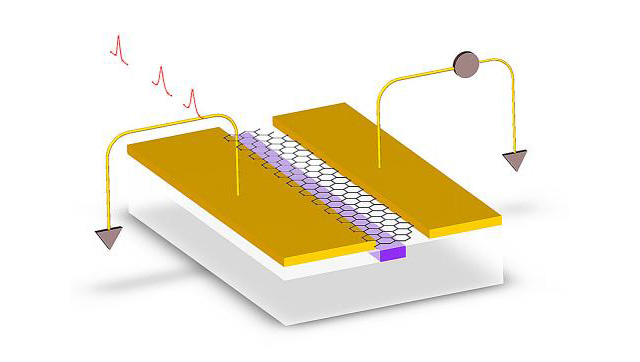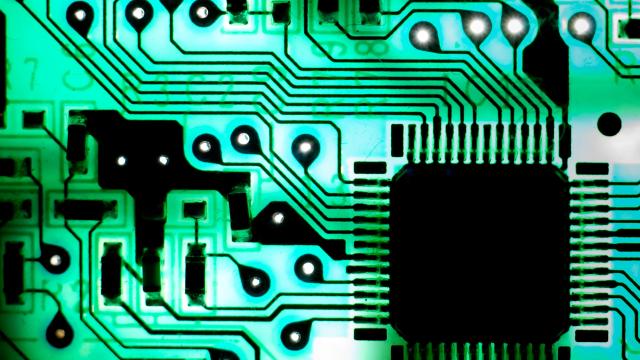Thanks to improvements in fibre optics, most of the information that you consume on any given day is transported by light. Quite inefficiently, however, most computer chips need electricity to operate, and scientists haven’t quite figured out how to make the leap to more futuristic materials. At least not until graphene came along.

A trio of studies was just published in Nature Photonics that detail a new technique for using graphene as the light-friendly base for computer chips. A design by researchers at MIT, Columbia and IBM’s T.J. Watson Research Center calls for a layer of graphene (pictured above as the hexagonal mesh) to go over a silicone waveguide (purple) and between electrodes (gold). Any electrons knocked free from incoming light would be converted into electrical energy. A chip built like this would not only be hyper responsive and very fast; it would also be cheaper to manufacture than standard silicone chips.
These so-called graphene photodetectors would work for a number of different purposes, both inside and outside computers. A team led by Thomas Müller from Vienna University of Technology also integrated graphene photodetectors with silicone chips. “There are many materials that can transform light into electrical signals, but graphene allows for a particularly fast conversion,” Müller explained in a press release. “These technologies are not only important for transmitting data over large distances. Optical data transmission also becomes more and more important for communication within computers.”
This is only the beginning for graphene-based computer chips. In fact, it’s one of the trendiertopics in fields like photonics. The sheer volume of research — three studies in one journal! — is keeping many scientists hopeful that the material will soon make the jump from the lab to the computer factory. In the meantime, chalk up another win for graphene, one of the most amazingly versatile materials we’ve ever seen. [Nature Photonics via PhysOrg]
